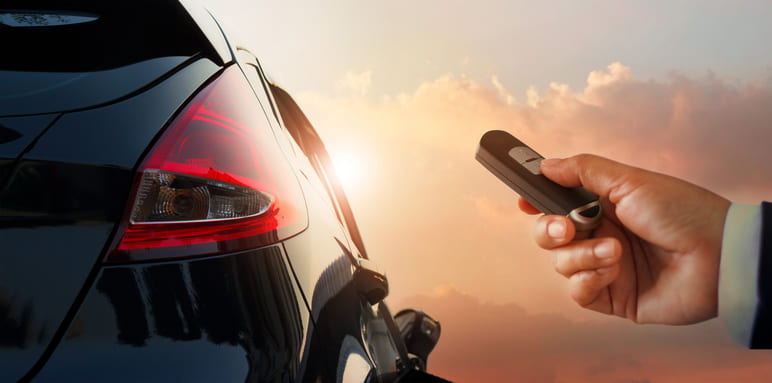
An aftermarket car alarm can give you what you need to make your car safe again.
You’re standing in your living room looking out at your brand new car. There’s a feeling of warmth running through you and it isn’t coming from the central heating. It’s a machine and a piece of art all at once, you think to yourself as you turn away and head upstairs to bed. This mix of Daimler and Dali is just as attractive to other people and there would be nothing worse than coming down the next morning to see just a blank driveway staring back at you. While all cars, whether cheap or premium, come with a door locking anti-theft system, these can be easily broken. Even if your car already has a car alarm system that is installed by the manufacturer, an extra car alarm will help provide additional protection for your vehicle and make sure you get that warm feeling everytime you look at it (Okay, okay…maybe you just want to get to work in the morning). As well as dealing with the best car alarms that you can add to your car, we’ve covered common problems for both built-in and aftermarket car alarms too.
Car alarms types and features
There are a few different types of car alarm that your car could already be fitted with or you could think about installing. As well as different ways of activating the car alarm, it might operate in a different way, have various ways of indicating that it is active, and there are a whole host of different capabilities of some alarms.
Audible alarms
The simplest car alarms are audible car alarms. They operate using sensors placed at different points on your vehicle. If something disrupts the sensors they activate and an alarm hidden in the car will go off. You can adjust the sensitivity levels of the sensors so that they detect the slightest movement or they can be reduced to make sure it doesn’t go off at the touch of a feather. Although some systems will flash the car’s lights and more advanced may alert users remotely when the alarm goes off, almost all systems will work in conjunction with audible alarms.

Active or passive systems
A car alarm can also be either active or passive. This refers to how the alarm is activated.
A passive system will arm itself automatically after the ignition is turned off and the last door is closed. Active alarms require the user to press a transmitter button to arm and disarm their system.
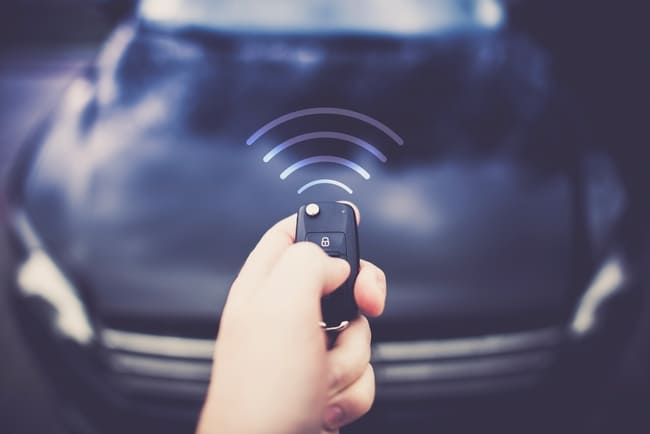
Most alarms can be configured as either passive or active and it is a question of preference here. It might be interesting to know, though, that you can probably get a discount on your insurance if you use passive alarm systems.
Two-way remote systems
A more advanced car alarm system is a two-way remote car alarm. These systems provide two-way communication between the alarm and the fob on a driver’s key ring. Some more technologically advanced systems will even have small LCD screens on the fob. Basic, older systems just set off an audible alarm and flash the vehicle’s lights to ward off potential car thieves (or scare cats who have set the alarm off by mistake). Two-way remote alarms, however, can communicate their status to the owner sometimes up to a mile away. This communication is not limited to a simple report that the alarm has been activated, either. It can include notifying the owner if someone breaks into the car or even if the alarm goes off for any reason. Your system might have a car alarm remote start function, which allows you to use the remote to start the car from a distance. A car alarm with remote start is another good way of warding off thieves and disabling the alarm if it has been accidentally triggered.
Aftermarket car alarms
There are a few things to keep in mind when buying an aftermarket alarm. The first thing to consider is installation, as this can be quite a challenge sometimes. There will be a lot of wires and ideally you need to be familiar with your car’s electrical system. You can of course take it to a professional to get it done. Some aftermarket systems, however, make installation dead easy. Some alarms can easily be installed on the roof of the car with glue and others have solar cells, which absorb sunlight and reduce the need for the alarm to be connected to the car’s electronics.
The range of the alarm is something that could be a deal breaker. Some alarms claim to have a range of a mile, but it is unlikely you will ever need to lock the car from this distance. It is better to think about the strength of the alarm rather than the range. This way, you can be certain that even at a distance you can secure your car with just the press of a button.
A car alarm with motion sensors is now a common feature of most new cars. The quality of these motion or shock sensors in your alarm system determines how sensitive the system is and what makes it go off. As stated above, this can often be adjusted, but checking just how sensitive it can go is a great idea before buying. We recommend going with a system that has responsive shock sensors that are capable of sounding the alarm when your car is hit with significant impact or when someone breaks through the glass of the car. In terms of how loud the alarm is, anything over 100 decibels will really terrify any potential crooks.
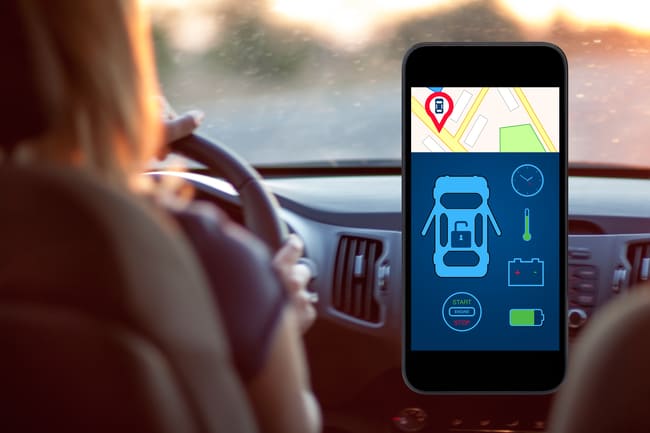
As technology has advanced in recent years, car alarms have kept up well. There are a wide variety of alarm systems that can be accessed and monitored via your smartphone. This adds a level of convenience that allows you to effortlessly control your car and use your phone as an extra remote. Some units come with features that send you alerts through mail or text in case of a security breach. A smartphone app also comes with a GPS tracking feature that can be incredibly useful in case your car gets stolen. Whether it is an aftermarket system or an in-built add-on, however, this will be a lot pricier than the bog standard system.
Smartcar alarm manufacturers understand that we are living in a digitally advanced age and that there are bound to be some tech-savvy thieves lying in wait.
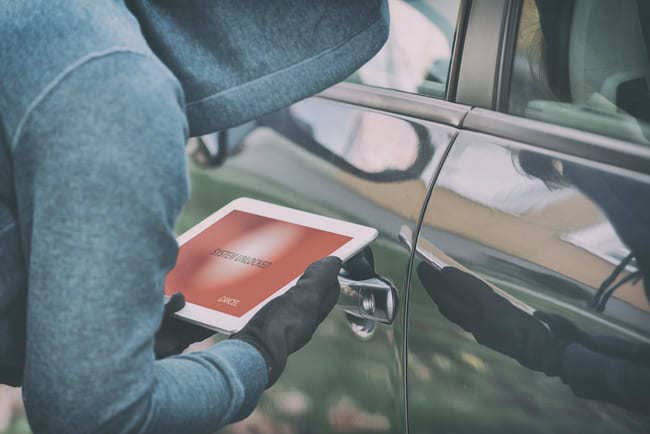
That is why many offer a system with encrypted transmission. Encrypted transmission simply means that the signals that your remote sends to your alarm system can only be decoded by the system and no other device. In most cases, cybercriminals will attempt to intercept the signals sent between your remote and your car alarm system in order to gain access to your car (no more crowbars required!). With encrypted transmission, though, the alarm system will be able to recognise what is an authentic remote signal and what is a hacker’s signal and then block them out accordingly.
Common car alarm problems
There are a lot of common car alarm problems that can drive you up the wall. From your car alarm randomly going off at night to when your car alarm goes off when unlocking it with your key and making the whole supermarket car park stare, they can be really annoying. They can even pose a real safety threat if you find yourself with a car alarm going off while driving! Here are some of the causes of the most common problems and some tentative solutions.
Remember: as with anything electrical on your vehicle, if it is a serious problem it is always best left to an expert.
Your car alarm goes off randomly
This could be caused by a huge variety of faults in the internal circuit of the alarm console. By randomly, we mean that the alarm goes off even when there is nothing around. Normally, you can stop the alarm by simply turning the ignition on or sometimes even unlocking the car.
If this doesn’t work you can also try switching off the button for the alarm, located beneath your steering wheel. However, if this does not solve the problem, you might have to remove the fuse of alarm. You’ll need to locate the fuse box, usually found under the steering wheel on pre-installed systems or under the bonnet in aftermarket systems. Your user’s manual for car or kit will give you the exact location of the fuse box. Take the fuse out using tweezers to disable the alarm. If this doesn’t work, your last resort should be to disconnect the negative terminal of the car battery to disable it. This is the last option because of course this means you can’t start the car when the negative terminal is connected. If this keeps happening, take it to a garage to get it checked out.
Alarm cannot be activated and deactivated
Sometimes it isn’t the alarm itself that is faulty, but the remote. If the battery inside a car alarm remote starts to die down, this could mean you can’t activate (or more embarrassingly deactivate!) your car alarm.
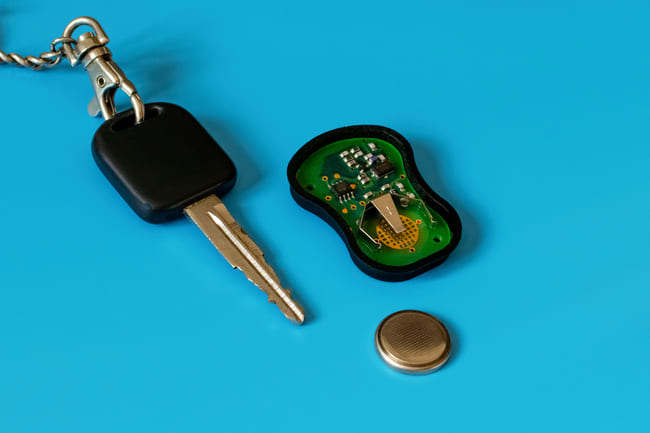
If you find that you cannot activate or deactivate the alarm using the remote control, start by replacing the battery and see if that makes a difference. If it doesn’t there could be more of a problem with the sensor that connects the two. This is likely to require more professional help and you should get it checked out in a garage.
Car alarm battery problems
A car battery can lead to all kinds of problems with your car alarm, chiefly that your car alarm is going to go off randomly. As well as the internal circuiting causing problems, if your car alarm goes off in the middle of the night an old battery is often the problem. Car alarms are actually designed to go off if the battery is too low in order to alert you to the fact that it is dying. It might not be an accident that the alarm is going off, but as a warning sign that something is wrong with your battery. This is likely to happen after around 5 years or so of battery use.
The alarm going off randomly when you aren’t using the car can also indicate that the battery is dying or that the connections have been corroded. This would mean that they are sending inconsistent power signals throughout the vehicle.
A corroded or bad battery can also give you problems, even if it is fully charged. This can still send out the wrong signals to the car alarm. Rusty and worn-out terminals send essentially the same signals as a dying or dead battery to the systems in the car. This doesn’t just mean that the car alarm could malfunction, but all of the electrical systems in your car. The car alarm going off could be a sign that something more serious is happening under your car’s bonnet.









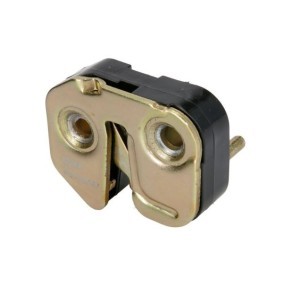








Comment